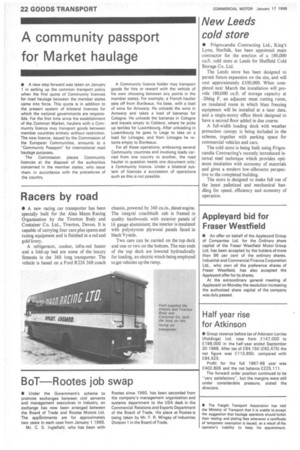A community passport for Market haulage
Page 24

If you've noticed an error in this article please click here to report it so we can fix it.
• A new step forward was taken on January 1 in setting up the common transport policy when the first quota of Community licences for road haulage between the member states came into force. This quota is in addition to the present system of bilateral licences for which the national governments are responsible. For the first time since the establishment of the, Common Market, hauliers with a Community licence may transport goods between member countries entirely without restriction. The new licence, issued by the Commission of the European Communities, amounts to a "Community Passport" for international road haulage purposes.
The Commission places Community licences at the disposal of the authorities concerned in the member states, who issue them in accordance with the procedures of the country, A Community licence holder may transport goods for hire or reward with the vehicle of his own choosing between any points in the member states. For example, a French haulier sets off from Bordeaux, his base, with a load of wine for Antwerp. He unloads the wine in Antwerp and takes a load of bananas for Cologne. He unloads the bananas in Cologne and travels empty to Coblenz, where he picks up textiles for Luxembourg. After unloading in Luxembourg he goes to Liege to take on a load for Limoges, and from Limoges he returns empty to Bordeaux.
For all these operations, embracing several Community countries and involving loads carried from one country to another, the road haulier in question needs one document only: a Community licence. Under a bilateral system of licences a succession of operations such as this is not possible.








































































































